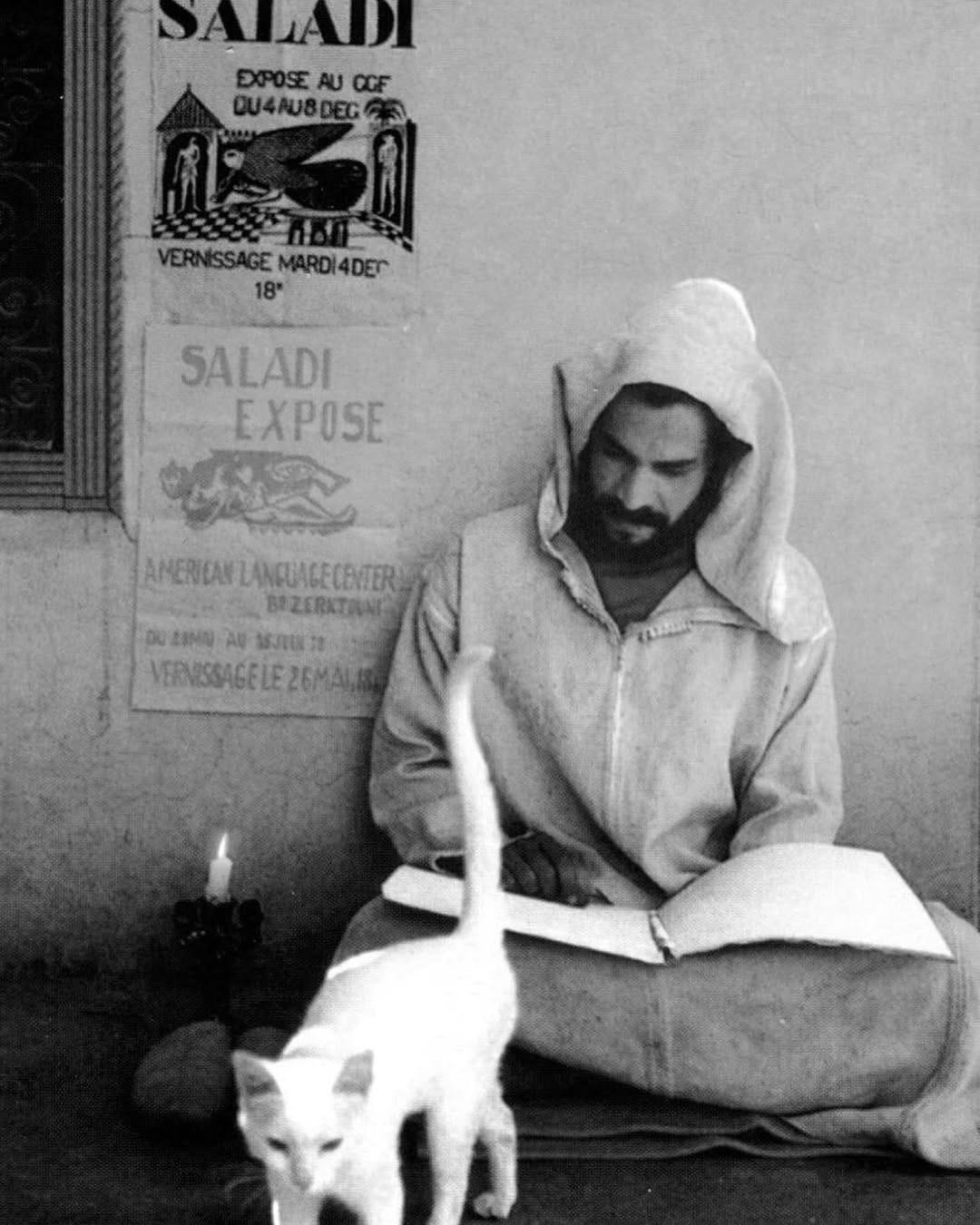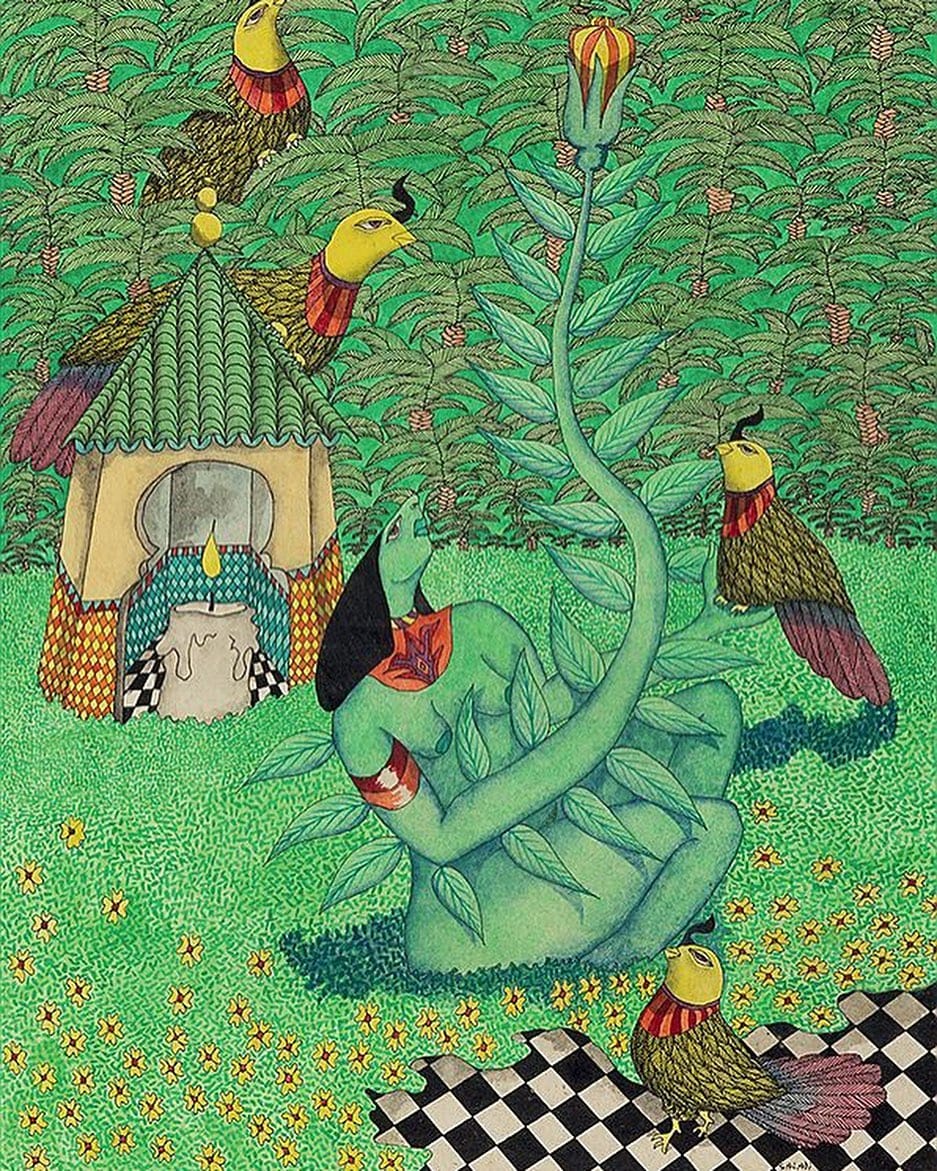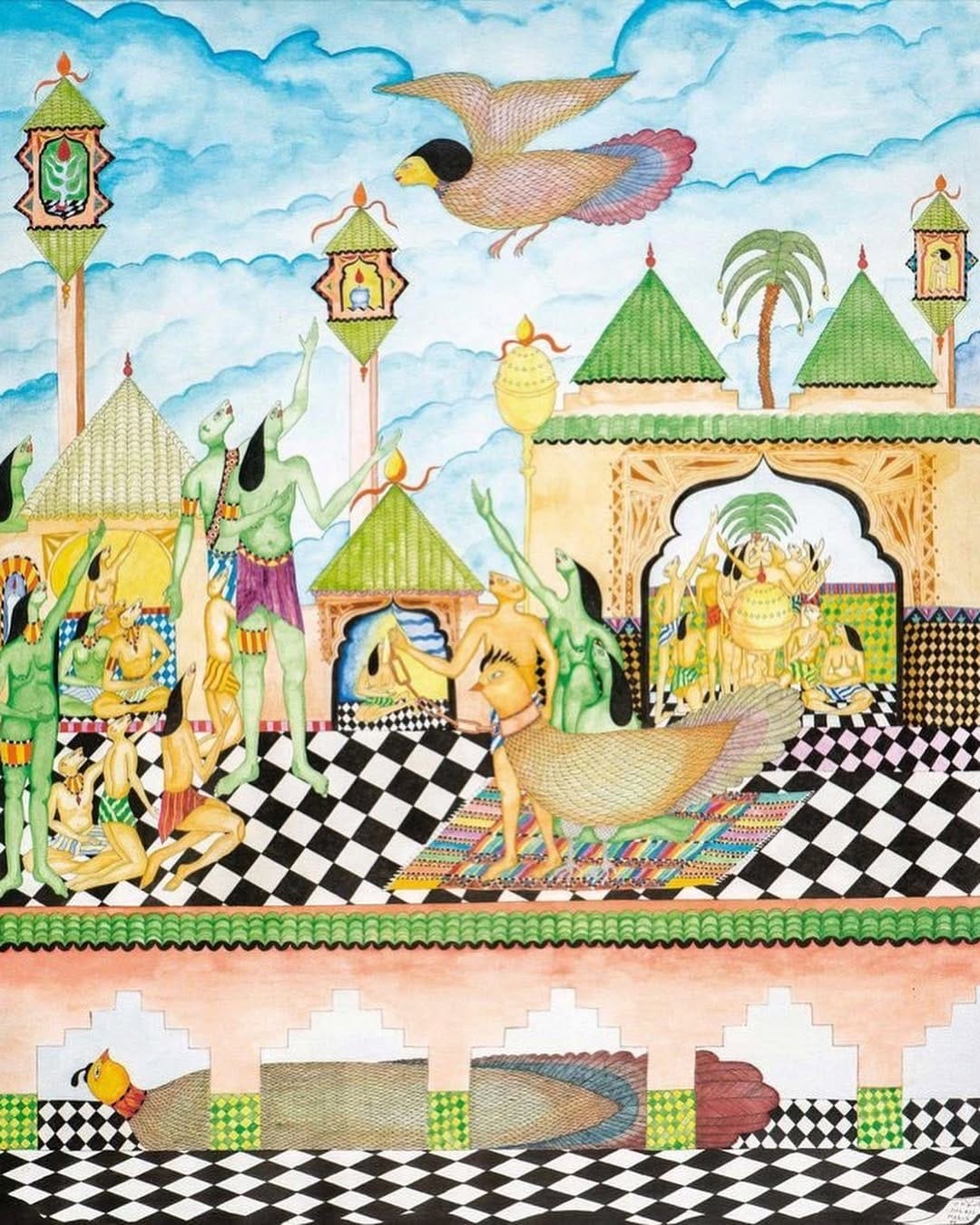The Moroccan Artist Who Painted to Fight His Mind

Abbas Saladi (1950–1992)
Abbas Saladi was born in Marrakech, Morocco, in 1950.
At just four years old, he lost his father.
Unable to care for him alone, his mother sent him to live with his uncle in Casablanca. That’s where he grew up. He was quiet, sensitive, and always drawing.
In his twenties, Saladi moved to Rabat to study philosophy.
But during his second year at university, he suffered a severe mental health crisis. He was hospitalized in a psychiatric clinic, a turning point that would change his life forever.
Inside the hospital, something unexpected happened.
One of the doctors, Dr. Tayeb Chkili, noticed his sketches and encouraged him to paint more. Art therapy became part of his treatment and slowly, Saladi began using painting as a way to express the voices, images, and pain he couldn’t explain with words.
After leaving the hospital, Saladi returned to Marrakech. He continued painting every day. His mother sold his artworks at Jamaâ El Fna, the famous square in the heart of the city.
One day, the director of the American Language Center noticed his work and was deeply moved. He offered to help Saladi organize his first exhibition in 1978. That moment launched his artistic career.
From there, his paintings began to attract more attention, first in Morocco, then internationally.

Saladi’s art is unlike anything else.
It’s colorful, surreal, and filled with strange beings: half-human, half-animal creatures, dreamlike shapes, and shifting bodies.
He mixed people, plants, birds, and symbols in precise, chaotic harmony.
Every line was drawn with care. Every detail came from a deep place inside him.
But even as his art career grew, Saladi’s mental illness remained a struggle.
He was hospitalized several more times.
A few months before his death, he said in an interview:
“Painting is my way of fighting madness and death. It gives me hope for immortality.”
Art was not just his passion: it was his medicine.
Through painting, he fought depression, broke taboos, and found a way to show the world who he truly was.
Abbas Saladi passed away in Marrakech in 1992, at the age of 42.
But his work continues to speak: raw, powerful, and timeless.

